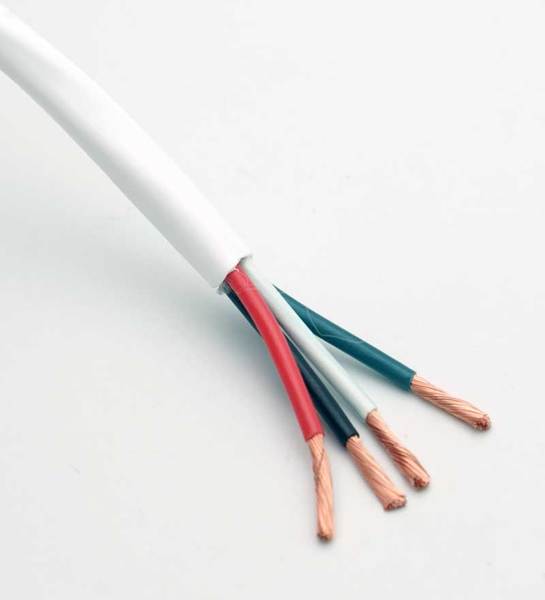Stop! Read This Before Buying Any Speaker Wire!

Most Do-It-Yourselfers find the most difficult part of implementing their new surround sound system is choosing the right speaker wire to give them the power and the sound they are striving for. Lets face it! No one wants to install a complete home theater system only to find out that the speaker wire they installed is causing their speakers to under-perform. The end result could be very expensive and time consuming if you have to re-pull new cables and replace them with the right speaker wire types that are needed.
There are many people out there trying to drive consumers to a certain brand or speaker wire type. But the truth is speaker wire is relatively simple to choose if you just know some of the basic facts. There is no doubt that copper is the best medium to deliver a signal from your receivers and amplifiers to your speakers. When buying speaker wire you may notice a lot of brands pushing the 99.9% oxygen free copper characteristics as a huge selling point of their wire. Most manufactures of quality speaker wire products use 99.9% oxygen free copper as a standard now but dont let them tell you it is for sound quality. Although it does help a little in the area of sound quality, it is really not a characteristic that can be heard with the human ear. The quality can only be seen when tested by expensive test equipment. The reality is that 99.9% oxygen free copper describes the copper type and how the copper is processed. The biggest feature that comes with 99.9% oxygen free copper is that it is the best for combating future corrosion. Since the impurities are filtered the 99.9% oxygen free copper wire will for sure last much longer.
The strand count is another basic characteristic of a speaker wire that you hear people talk about all the time. Many sales people in the industry market their speaker wire as superior because it is made with a higher strand count. The strand count is another one of those characteristics that have been glamorized by the industry. Although there is an argument that the more strands equal more surface area the reality is again that the sound quality effect will be so little you would never notice the difference. The truth is the more strands means more flexibility and ease in installing or dressing the cables in a rack. Most professional installers prefer a high strand speaker wire because it is much easier to dress, control, and route in the walls, ceilings, and into an equipment rack. But this flexibility does come with a cost. Most high strand speaker wire products are little bit more expensive due to the added manufacturing costs when making it.
The speaker wire gauge may be the most important characteristic to pay close attention to when choosing your speaker wire. Since there is so much resistance and voltage drop the signal carried through a speaker wire loses its strength every foot it travels. By the time the signal reaches your speaker it could be so weak that your speaker will simply always under-perform. The best way to combat this signal degradation is to increase the copper gauge of your wire and give your signal more surface area to travel over. The AWG or gauge describes the thickness of the copper conductors in a speaker wire. So a 16-2 Speaker Wire is a 16 gauge wire, and a 14-2 Speaker Wire is a 14 gauge speaker wire. Remember that the smaller the number means the thicker the cable and the more copper you have. So it is important to choose the right speaker wire gauge that best supports the distances you have between the speakers and the amplifier. Here is a little rule of thumb you can use choose to choose the right speaker gauge to support your cable runs. For speaker wire runs less than 60 feet, use 16 gauge speaker wires. For speaker wire runs between 60 to 180 feet, use 14 gauge speaker wires. For speaker wire runs more than 200 feet, use 12 gauge speaker wire options. There are other factors that could affect these recommendations like sub-woofers and powered speakers, but in general these recommendations cannot hurt you.
The last aspect of choosing speaker wire is to pay attention to the ratings or certifications of the cables. It is important to use in-wall rated speaker wire for any in-ceiling or in-wall speaker installations. It is always recommended to follow your local building codes and use the speaker wire that best supports them. The last thing you want to do is install a cable type that may create a hazard at your home. Most quality cables with have their certifications clearly documented on the box and on the cables jacket. Common certifications for in-wall rated cables are CMR and CL3 ratings, plus good quality cable will have a UL rating on it.
At the end of the day it is not the brand or the price of the speaker wire that will make your surround sound system perform. Look for some of these basic characteristics and choose the speaker wire type that best supports your application.


